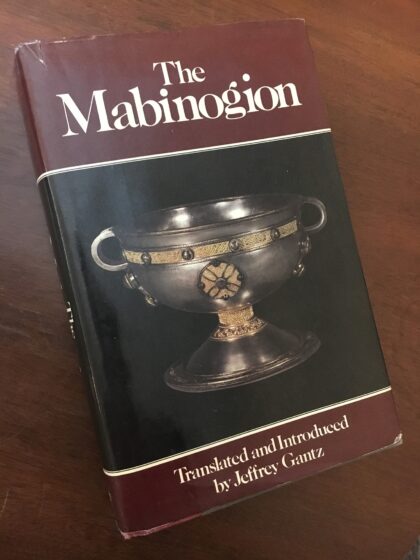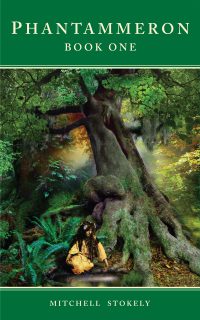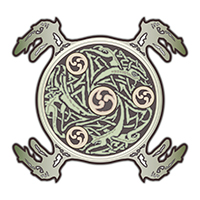“On the bank of the river he saw a tall tree: from roots to crown one half was aflame and the other green with leaves.” – Peredur, from the Welsh Celtic Mabinogion (12th century)

I love Celtic literature and how my ancestors portrayed everything with a stark ambiguity. This idea of a greening tree cast aflame in part is a reflection of their view of the beauty of the living world and that of the mysterious dark “Otherworld” of Faerie existing side by side; of life and death, light and shadow side by side.
I see this often in my own writing and I’ve wondered where it comes from….this love of the imaginary and unreal, and the ability to assign dual conflicting values onto things. Things can be both dark and light, large and small, free but trapped, etc. in my writing at times. It turns out that’s a very Celtic Irish theme.
The Mabinogion
The Welsh Mabinogion is a rare 13th century document containing relics of lost Celtic Mythology. This book remains a mystery to many as the stories feel Druidic and ancient. Many are irrational, like the bizarre journey to Annwvyn, the Celtic Otherworld, or Branwen Daughter of Llyr in which a magic cauldron is sought in one part. Like Geoffrey of Monmouth’s History of the Kings of Britain it is a mixture of pseudo-history, local story, and ancient myth.
This manuscript was a major source of inspiration for my writing (Phantammeron Books) and it’s story of a cursed cauldron or bowl (the Argal Pyr) which appears in later books of the Phantammeron. The Pyr in my stories to come would form a type of “anti-Grail”, the men and women who drink from it cursed by temptations and doomed events. But the Welsh stories remain a source of inspiration for me, not just because my family came from Wales, but because the Welsh like the Irish remain one of the last sources for original Celtic mythology.
This bizarre imaginative culture that embraced such strange dualistic views of their world was how the Celts were described by the Romans. And it is how our ancestors in Ireland and England viewed the world before the arrival of the Anglo-Saxon European invaders and the Vikings later which destroyed their culture. But somehow small relics of the Britons and Iron Age Celts survived in Wales where my family is from. So it’s wonderful to read the things they wrote and get a feel for how they viewed their myths.
We should all listen to the hidden voices of our ancestors, of those who came before us with such wisdom. In our writing there is much mystery there hidden to discover that breaks free of the mind and onto the page. These hidden voices of the past are here today in the quiet places of the mind and in the dusty and untouched book shelves of tomorrow that remain, treasures of wisdom, silent words that may summon up the mystery and myths of the ancients if we will just stop and listen.
– the Author



